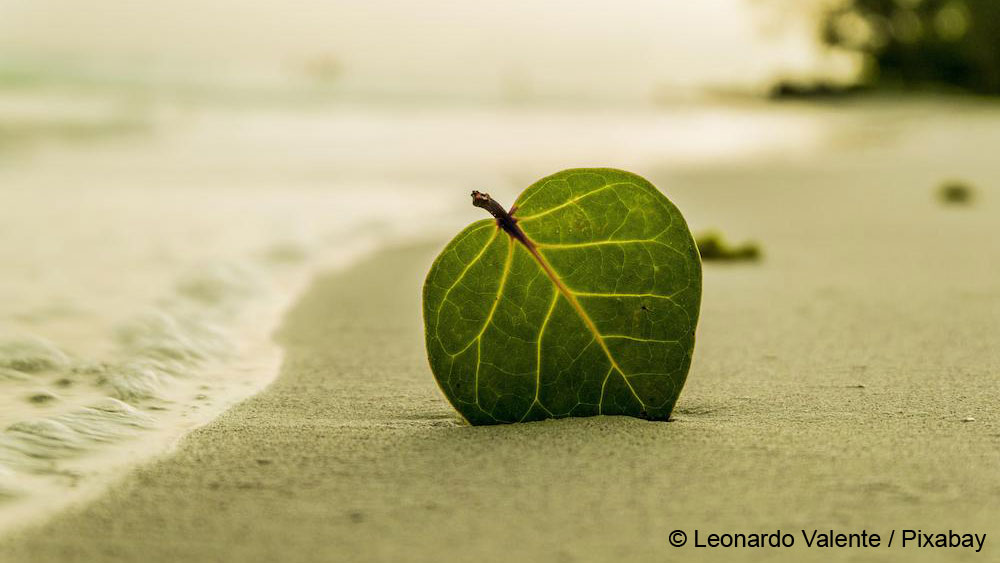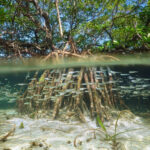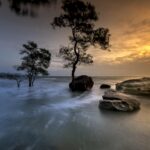This project is intended to assess and develop the first major blue carbon project under new 2023 national forest carbon regulation in Indonesia, assessing the viability of mangrove restoration on village owned land in Southeast Sulawesi. This stage looks at restoring mangroves in 1729 hectares of abandoned fishponds.
One of the project outputs BCAF is supporting will be a guide on how to navigate the new carbon legislation for mangrove restoration on land designated as non-forest areas, or areas for other purposes (APL), so that the concepts here can be replicated to other forest restoration work across Indonesia.
.
The Blue Natural Capital solution with rePLANET
Community-centred nature conservation, aggregated across multiple villages
Carbon and biodiversity credits are expected to fund restoration and conservation efforts, while also benefitting local stakeholders; the owner-users and managers of the restored sites. The envisaged benefit sharing approach looks to return 60% of the final price of carbon credits sold, with prices enhanced in value by quantifying biodiversity units of gain, for the benefit of these local stakeholders, with an emphasis on ensuring women receive fair shares of the benefits.
The land identified in this project is currently designated as non-forest areas, or areas for other purposes – purchased or granted to individual farmers by the government. This is known as Areal Penggunaan Lain land, or APL land. The project will also explore opportunities to purchase and put ownership of land into a community trust of the village, on the basis that the land perpetually remains mangrove forest. Alternatively, leasing options or eco-empang arrangements could potentially be offered across the 35 villages in the project area. Beyond that land purchase or lease, further purchases will be made to the village as a whole.
Consultation has already started with the 35 communities being engaged.
Main activities
- Complete updated consultations with the participating communities and establish levels of interest in participating in this scheme;
- Complete detailed budgets for the project in investor-ready format;
- Draft and submit a DRAM/Project Design Document to the Indonesian carbon registry (SRN), in Verra format, for the implementation of a project to restore mangroves to areas of abandoned or under-utilised shrimp farms in SE Sulawesi;
- Review all relevant existing Indonesian legislation and follow the necessary steps to take the project through approval for sale of a proportion of the credits on the Voluntary Carbon Markets
- Create a guide detailing steps needed to restore mangroves on APL land in Indonesia.
How BCAF supports this initiative
BCAF will fund two critical project milestones focused on finalising data collection.
Funding will support a comprehensive biodiversity assessment and development of a world class biodiversity monitoring program, to prepare the project for certification and audit under a leading international standard for environmental markets.
Impacts created
Nature
Nature
Analysis will be made on…
• Total canopy cover,
• Breeding bird species richness and abundance,
• Reptile species richness and abundance,
• Fish species richness and,
• Abundance and in-sediment fauna species richness and biomass
People
People
The project engages 35 communities to analyse the possibility of…
- 60% of carbon or biodiversity credit sold from the project returning to benefit the local stakeholders;
- Land purchases becoming part of a village trust, conditional on it’s continuity as perpetual mangrove forest.
Business
Business
The project will analyse…
- The potential of carbon and biodiversity credits sales entirely funding mangrove restoration and conservation;
- Additional income streams are projected to be generated;
- If the project is scalable and replicable in other locations with similar situations and challenges, via the village aggregation approach.
More information
Want to know more about why BCAF is supporting these projects? See more here:
Our Investing for Ocean Impact Podcasts speak on all subjects around Blue Carbon: investing in it, financing it, running projects on it, and how local communities can be involved and benefit:





